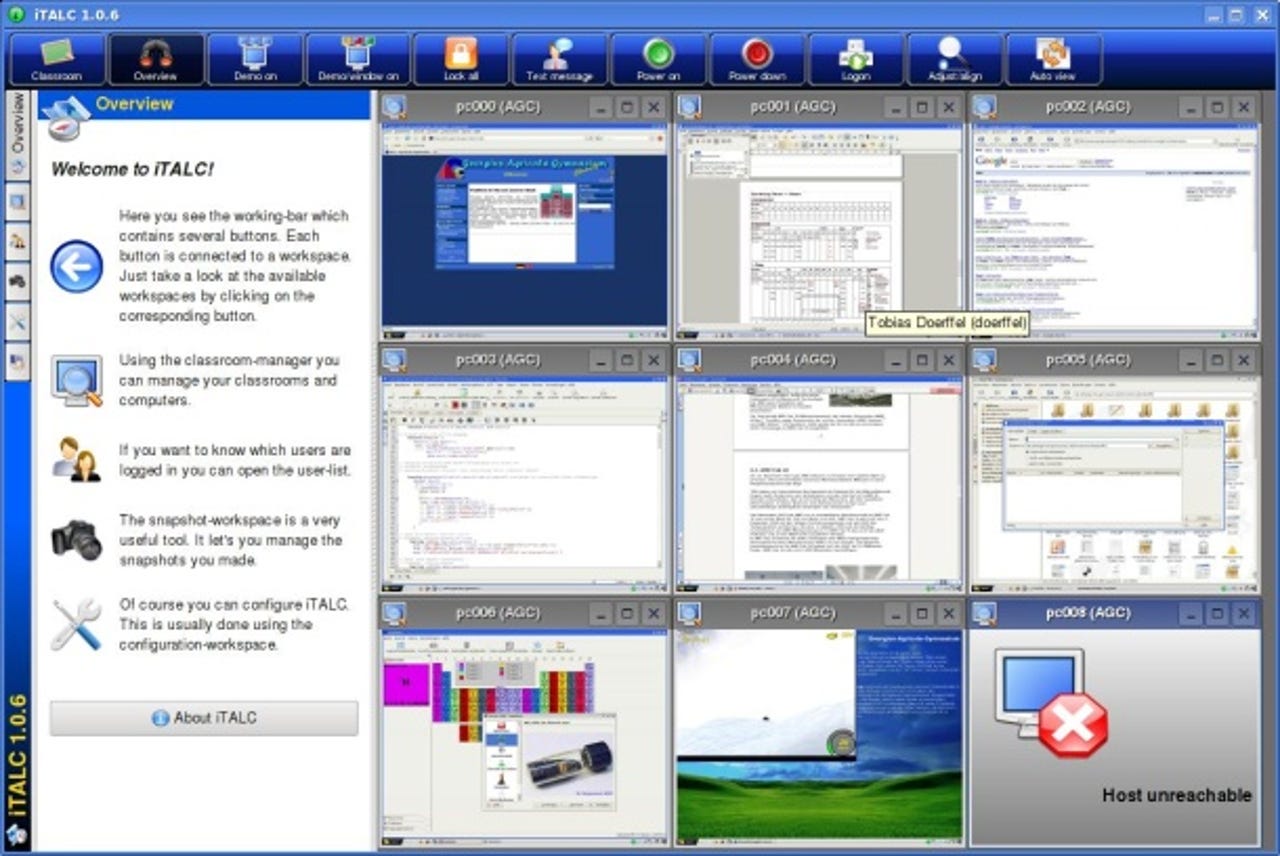Open source projects that deserve your donation


People who enjoy open-source software often forget that most of the developers behind the code are working in their own time and at their own expense.
For some open-source projects, it's not an issue, but others would benefit hugely from donations. So I thought it's worth listing 10 projects I feel deserve help. They range in audience and scope, and some are more in need than others, but each would benefit from financial support.
1. iTalc
iTalc is the first of two educational projects on my list. Most people would agree that education should be a high priority for donations, attention and general aid. This open-source project is a powerful didactic tool that enables teachers to instruct, control and test students and their PCs. It allows teachers to view and control a student's desktop over the network and, among other things, take screenshots. Of course, nearly every open-source educational software project could do with financial support, unless it's already funded by a university.
Image credit: iTalc
Once you've seen Claroline in operation, you'll probably be surprised you hadn't heard about it before. Claroline is a web-based application that can facilitate online education and online class management for teachers and students.
Claroline lets you manage documents and files, courses, students and groups. You can also create online exercises, track results, import Sharable Content Object Reference Model — Scorm — content, offer chats and forums, and collaborate.
Image credit: Claroline
It's hard to find a better balance between speed and attractiveness among the numerous Linux desktops than that offered by Enlightenment. It doesn't follow the standard approach, yet still succeeds in making the desktop user friendly.
Even though this project has been running for some time and continues to evolve, its adoption remains surprisingly low. I have a lot of faith in the Enlightenment desktop, and others would share my enthusiasm if they tried it. Getting more exposure is the key for E17 — and for that, donations could really help.
Image credit: Enlightenment
GNU Health is one of the best open-source tools for hospitals. It allows them to focus on family and primary healthcare, on prescriptions, billing, and patient genetic and hereditary risks, as well as on socio-economic issues such as housing conditions and substance abuse. GNU Health offers an outstanding patient records section, along with imaging and appointments.
Image credit: GNU Health
Finance is not one of open-source software's strong suits. Fortunately, there are two applications that can help small businesses manage their money. One of those applications is Lemon POS. Although not the easiest application to install, once it's up and running, Lemon POS will serve small businesses well. Its only downside is that it has yet to integrate with an application to track assets and finances.
Image credit: Lemon POS
If Lemon POS could be integrated into GnuCash, the open-source community would have a particularly potent product for small to medium businesses. But even as a stand-alone application, GnuCash offers those businesses some serious financial management power.
It is a strong contender in double-entry accounting and offers significant reporting power, as well as multiple accounts and account types. GnuCash is cross-platform and constantly growing and evolving.
Image credit: GnuCash
This is my pick of the bunch in multimedia software. Audacity is outstanding at recording and editing sound files, but it does so with the flexibility and reliability of programs that are often far beyond the budget of the average consumer.
I use this tool every week to record my Zombie Radio podcast, and I can't imagine being able to make such professional-quality recordings without it. Audacity is cross-platform — it runs on Windows, Linux, Mac, among others — and can record live audio, edit audio, import, export, and add effects.
Image credit: Audacity
If you're looking for a cloning tool, Clonezilla is a strong candidate. It allows for bare-metal backup and recovery and resembles Norton Ghost and Symantec Ghost Corporate Edition. Clonezilla offers the best features of those packages for free. It provides cost-effective, bare-metal recovery.
Image credit: Clonezilla
Having used plenty of web-based email tools before, I can safely say few of them match SquirrelMail for ease of set-up, use, and reliability. Although not an Exchange OWA rival, SquirrelMail is a good solution for smaller businesses and educational institutions that need web-based email without all the extra features.
Image credit: SquirrelMail
If you don't want to splash out on an industry-specific scheduling system, Meeting Room Booking System, or MRBS, might fit the bill. This tool is run by a small group of developers who do a great job of keeping the project moving on. With more funding, this tool could become larger and find a wider audience. I would love to see it find its niche and grow from there.
What do you think?
Each of the projects listed here could benefit from your help. You hear of good open-source projects closing due to lack of funds, and I would hate to see that fate befall any of the projects listed here. With your help, they will prosper. But are there other candidates you think I should have included?
This story originally appeared as 10 open source projects that could really use a donation on TechRepublic.
Image credit: Meeting Room Booking System